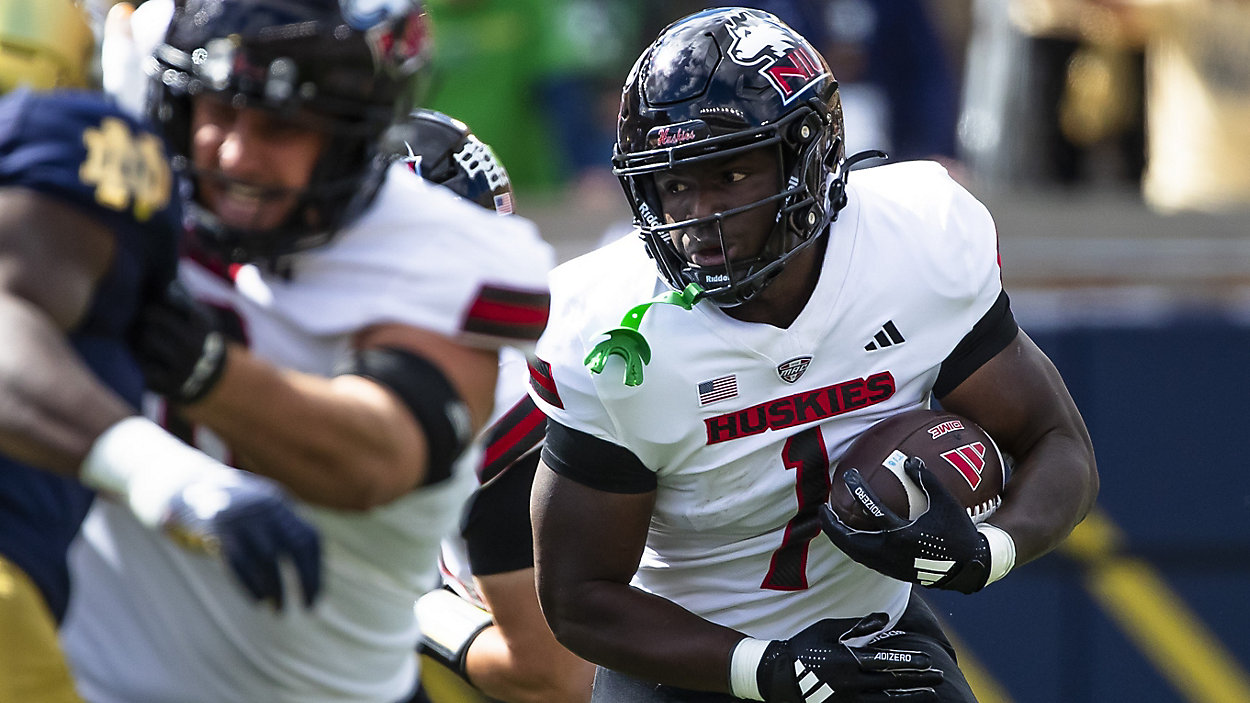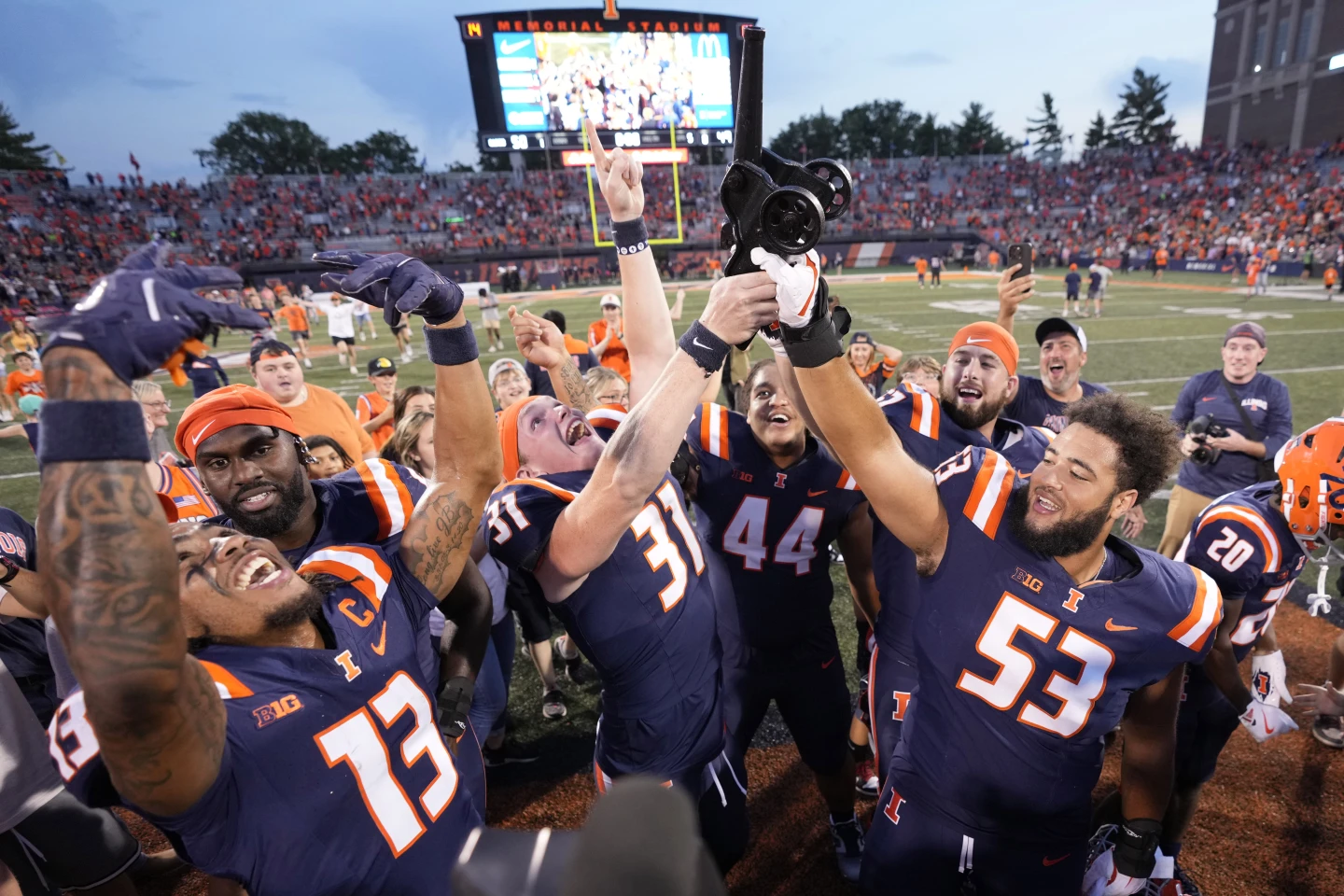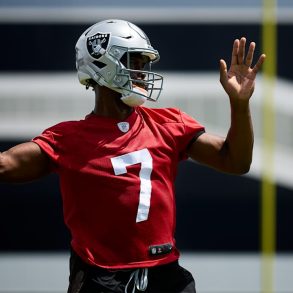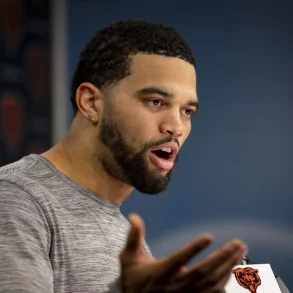The athletic director of a mid-sized school that is seeing success this season has a simple idea to address the growing concerns around the college sports transfer portal system.
Sean Frazier, the athletic director at Northern Illinois University (NIU), proposed a “talent acquisition fee” to manage what many consider the chaotic transfer portal system in college sports.
His idea is for schools to pay a fee to other teams when they sign players from them. While he admits this is a long shot and might not solve all the issues, he believes it could help establish guidelines in a system that many feel is out of control.
Frazier’s idea is somewhat similar to the “transfer fees” seen in European soccer, where teams pay a fee when they acquire a player from another team. He believes this approach could support smaller schools like NIU, add transparency to the process, and make the transfer system more structured.
There are over 11,000 football players from all divisions entering the transfer portal, and some of these deals are made through text messages in the middle of the night.
“At the end of the day, the kid deserves the compensation and support,” Frazier said in an interview with The Associated Press at the NCAA convention. “But the institution, to keep the cycle going, they deserve something as well. We’re not in the situation to continue to do that if we keep losing our best and brightest.”
NIU has faced its own set of challenges despite recent successes, such as beating Notre Dame earlier this season. NIU has also announced it will move its football program from the Mid-American Conference to the Mountain West Conference starting in 2026. The Mountain West is one of the strongest conferences in the Group of Five, with teams like Boise State making it to the College Football Playoff this season.
Smaller schools like NIU are faced with difficult decisions as the House Settlement will soon change the college sports landscape. The settlement will allow institutions to pay players directly and reshape roster sizes. NIU must decide whether to join revenue-sharing agreements for direct player payments or continue to use third-party collectives to handle those deals.
Despite having success on the field, schools like NIU are at a disadvantage in competing with larger schools that have more resources to attract talent. Frazier shared the example of defensive tackle Skyler Gill-Howard, who came to NIU as a walk-on, improved over the years, and had a strong season with five sacks. However, after entering the transfer portal, Gill-Howard will finish his college career at Texas Tech.

“He did a wonderful job. Our coaching staff did a great job developing him,” Frazier said. “The heartache of it is, he’s gone. From the G5 perspective, we’re fine with the developmental side of things. There’s a certain level of respect there. But this could help institutions like us, where there’s a flat fee, or dollar amount, that’s a show of appreciation for the development of the game.”
However, Frazier’s proposed plan could face significant challenges. College sports are known for being slow to make large changes, and the U.S. court system has previously blocked policies that limit players’ ability to earn money. Frazier’s idea is similar to the now-abolished “Rozelle Rule” in the NFL, which allowed teams to receive draft picks for signing players from other teams with expired contracts.
In European soccer, transfer fees have been a common practice, but there have been legal challenges to that system as well. Gabe Feldman, a sports law expert, believes Frazier’s fee idea is unlikely to succeed, pointing out that while there are many ideas being discussed, not all of them will become reality.
The transfer portal continues to be a hot topic in college sports. As seen with players like UNLV quarterback Matthew Sluka, who left after a promised $100,000 payment wasn’t kept, or former Florida QB Jaden Rashada’s lawsuit over an unpaid $13 million NIL deal, the system remains problematic. Accusations of tampering and players leaving without warning have also become more common.
NCAA President Charlie Baker voiced concerns about the lack of transparency and accountability in the system. “I can’t believe we live in a world where people are making decisions and issuing offers in text messages,” he said. “The number of kids who have told me terrible stories about misrepresentation — there’s no process, accountability, no transparency.”
While Frazier does not see his “talent acquisition” fee as a complete solution, he believes it could be a step in the right direction. He compares it to the NFL and NBA, where collective bargaining and drafts set the rules for player movements.
“We don’t have that,” Frazier said. “This is one of the guardrails that could get us to the point of acknowledging that, yes, you still can buy your team, but it shouldn’t be the wild, wild west.”







